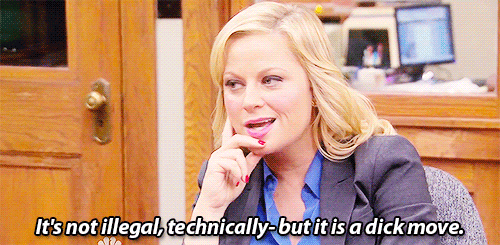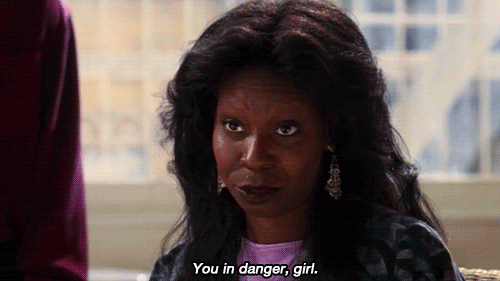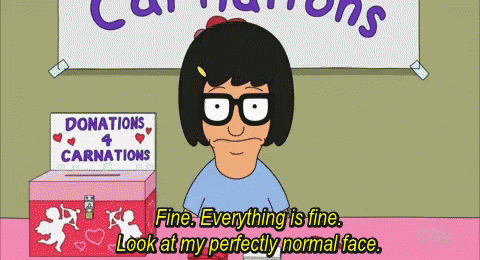When it comes to relationships and love, one of the biggest questions many people have is: why did my relationship fail?
Looking back on failed relationships can be a hard experience for anyone, but, in order to grow and take part in a better partnership with another person in the future; we have to look to the past as lessons. In order to change the outcome of our future relationships with people, we have to go back and access what exactly went wrong before. Some of us are in relationships that are tanking–they're unhealthy for us and our partner both. Some of us are ending relationships that we once thought were “forever loves,” because it's no longer what we “signed up for.”
There are many different reasons why people feel the need to step outside of themselves and reevaluate their actions and decisions within romantic relationships. But, overall, the main reason is that something is inherently wrong. For many individuals, it's easier to put the blame on their partners than it is themselves. We'd rather look at our exes as “toxic,” or maybe “selfish,” or even “horrible people,” rather than admit we have personal faults that we need to work on. Relationships don't always fail because of one person. In fact, the majority of relationships that do fail happen to fail because both people were at fault. In order to ensure that you can enter a future relationship without making the past mistakes, you need to take a look within yourself and see how your actions affect your partner and your overall relationship–no matter how bad it hurts.
1. You go through your partner's phone, social media accounts, or even their mail.
Going through your partner's personal property is an immediate red flag that indicates the trust in your relationship is gone. The minute you feel the need to invade their privacy indicates that there's a huge insecurity residing within you. Whether it be because you think they're talking badly about you to their friends, you think they're talking to another person, or that they're lying to you–going through someone's personal things is never okay, nor is it healthy.
If you're having trust issues in a relationship, you need to step back and ask yourself–why? Is it because you've been hurt in the past and you are bringing negative experiences into a relationship, despite the person giving you no reason not to trust them? Or, does your partner actually give you a good reason to not trust them–for example, lying and sneaking around behind your back prior.
Sitting down and really asking yourself why you're doing this is imperative to understand what is failing in the relationship. Yes, going through someone's personal property is wrong (and even illegal), but, it's more important to figure out why you're doing it. When you feel the need to do so, stop yourself and note what you're thinking at that very moment. It's the only place to start.
2. You have no individual independence outside of your relationship.
Being in a relationship means that you're entering a partnership with someone. This means it's no longer just “you” when you make big decisions about your life. While that's true–to an extent–being in a relationship does not mean that you're attached at the hip to someone for the remainder of your time together. Being in a relationship with someone requires you to consider someone else, however, it does not mean that you no longer consider yourself as an individual.
Bigger things are going to require you to think of your “partnership,” but, you should never lose who you are over being in a relationship. For example–it's okay to go do things for yourself, by yourself, without feeling the need to “okay it” with your partner. Go on vacation with your friends, invest in things/hobbies/experiences that make you happy, see your family, take care of yourself.
Being in a relationship means that someone fell in love with who you were before you began dating. Losing yourself to the relationship means that you're losing the person who your partner fell in love with. Don't hinder your growth as a person because you are in love–love should be the water that allows you to flourish, not stunt you.
3. You stop taking care of yourself.
We all know that there's a universal “joke” many people believe in that when you are in a long-term relationship, you gain those “relationship pounds,” or begin to let go of yourself a bit. When we do this, this actually is hurting ourselves and our relationships overall. Now, I'm not saying there's anything wrong with gaining weight–in fact, if you do, it means you're comfortable with the person you're dating which is a good thing. The negative side of this is becoming too comfortable and too focused on the relationship that we let go of what makes us thrive.
Similarly to having no independence outside of the relationship, letting yourself go can have a lasting impact on your life as a person. While your partner may love you no matter what, your self-esteem about yourself is imperative. Do you feel good about yourself? Do you like the way you look? Do you like the way you feel? If you answer no to these, maybe it's time to refocus your energy and time onto yourself, and less on your partner and the relationship. It takes two people to make a relationship thrive. Not every day is going to be 50/50, but you can't always be giving 100 to the relationship, and 0 to yourself.
4. You don't trust them when they go out without you.
Another big indication that the trust in your relationship is non-existent is when you feel the need to do everything and anything with your partner. Relationships need space, both people need time to grow and breathe as individuals. Friendships and relationships outside of your romantic relationship are important–they should never be dropped or given up because you fell in love. When your partner goes out with their friends, you shouldn't be blowing up their phone and stalking their social media accounts to see where they are and what they're doing.
If you feel a pit in your stomach and an uneasiness when your partner goes anywhere without you, you need to stop and reevaluate why you feel this way. If it's because of the friends they choose to go out with–maybe they cheat on their partners, maybe they're all single–you need to sit down and have a conversation about it. If it's because you just don't trust your partner, you need to understand why and decide whether or not this is something that can work long-term.
5. You put too much pressure on the relationship.
When everyone around you is moving forward in life–getting engaged, getting married, having kids–it usually makes us wish we were at this very same point in life. But, your relationship may not be ready to take that next step. Putting pressure on your relationship to move faster than it is can inevitably hurt both you and your partner in the long-run. Many times, people try and push their own agendas in relationships–like, wanting to be married by 25, or wanting kids by 30–instead of letting this take its natural course.
Putting unwanted pressure on a relationship can not only lead to failure, but it also enables you to miss the little moments in the “here and now.” If you're so preoccupied with stressing over “where are we,” and “what are we,” you may miss those moments in time that you'll want to savor and cherish down the road.
Instead of allowing society to dictate your relationship, instead, let it progress and grow on its own. It may not be your “end all, be all” relationship, but that doesn't mean you can't enjoy your time together while it lasts.
6. You ask your friends for advice instead of working things out with your partner.
Going to friends once in a while is okay, but when it comes to your relationship, your questions and concerns should be addressed towards your partner and not outside influences. Not only is this toxic for your relationship, but it's also toxic for your friendships as well. Usually, your friends are going to have your back because they only hear your side of things–they have no idea what really happened (you know how they say there are three sides to every story: your account, my account, and the truth). Your friends are hearing one side of the situation and most likely, because you're angry, you're painting your partner out to be the one in the wrong. The advice, therefore, is going to be biased.
As well, if you and your partner decide to work things out in the long run, your friends may still be salty and angry about what happened–and it'll make a rift between them and your partner. Going out as a group will be awkward, they'll try and talk you into breaking up with them, and things can turn pretty damn messy–fast.
Keeping your concerns about your relationship inside of your relationship is vitally important to work things out. If you need outside advice, it's okay to ask once in a while–but, if everytime you fight with your partner you run to other people for help, it can only get worse.
7. You constantly threaten to leave when you argue, instead of working things out.
Saying you're going to leave when you have no intention to leave is toxic and unhealthy. The only time you should bring up leaving is when you're actually ready to go. Empty threats not only hurt you, but they hurt your partner and your relationship in the “bigger picture.”
When you continuously do this, not only does it hurt your relationship, but it makes your partner feel as though you don't take them or the relationship seriously. Saying things of that magnitude during tense and angry situations is inappropriate and a form of abuse–especially for people who have a fear of abandonment or have had their heart broken in the past.
The only time you should ever say “I'm going to break up with you,” is when you 100% mean it.
8. You have no idea how to communicate your feelings to your partner.
This goes for a magnitude of things. It's important to be able to know how to explain how you feel about your partner–like, saying that you love them, appreciate them, respect them–but, you should also know when and how to tell them you're unhappy. Many times, relationships fail because one person is unable to communicate that they're unsatisfied and their needs are not being met.
It takes a lot to have “the talk” where you tell someone you love that you're unhappy with them–but it doesn't mean that you're a bad person. In fact, the earlier you tell them, the more of an opportunity they have to try and fix things. And, if things don't get better, you know that you tried to work them out and that you put the effort in to make things right.
Try sitting down with your partner and approaching it in a way that is positive, rather than negative. Instead of just listing all the reasons you are unhappy, try and tell them–”This makes me feel unsatisfied, maybe we can try this instead…” giving them room for growth and allowing them to see you're not trying to end things, but work on them instead.
9. You take things way too personally.
Not everything is going to revolve around you–even in a serious relationship. I often go through the notions where I take things so personally and in turn, my boyfriend and I argue like children because I'm being bitter. When someone's in a bad mood, it doesn't necessarily have to do with you. Sometimes, your partner may have a bad day at work/school, they may be overwhelmed with deadlines, or they could have some problems going on with their friends/family–again, their entire life does not revolve around you.
If you see that your partner is off/unhappy, ask them what's wrong instead of assuming you did something wrong. If they don't want to talk about it, respect their space, but let them know that when and if they want to talk that you'll be there for them. Many times, people want to cool off and then talk when they're ready instead of blowing up on the person who is trying to help.
10. You keep trying to mold your partner into someone they’re not.
We all have idealized versions of our “perfect match,” and, unless you're building a robot, it's unlikely you're going to find someone that has everything you want–down to their eye color. If you do, congrats, good for you! For the rest of us, there's always going to be things that we don't “love” about our significant other. But, you can't try and change someone to become a different person just to please you.
Now, there are some exceptions to this rule. If you date someone with extremely toxic habits–like alcoholism, drug use, or abusive behavior and wish to stay with them through it, the change is for the better (for them, not just for you). But, if you're trying to change someone just to fit an agenda you have, it's unfair and unhealthy. You should be with a person because you love them for who they are–not what you want them to be.
Yes, it's true that in relationships, we grow, mature, and change overtime–but, you shouldn't manipulate someone into becoming someone they've never been just to appease you.
11. You cannot admit when you’re wrong, or when you’ve f**ked up.
Learning to take accountability for your mistakes and your actions is not only important in relationships, but in the real world. Many people have a hard time admitting when they're wrong–and, genuinely apologizing. Sometimes, it's hard to let your stubbornness slide and realize–hey, I definitely f**ked up.
Maybe you were fighting and said something cruel in the heat of the moment. Maybe you forgot plans and blew them off. Maybe you hurt your partner's feelings by saying something as a joke that ended up being pretty rude. Whatever the case may be–if your partner says they're hurt by something you've done, you need to understand why. You may not think that what you did was a big deal but, if someone says “hey, what you did bothers me,” you need to stop and understand and listen.
By saying that they're “overreacting” and they're “wrong,” you're telling them that they're feelings are not valid–which, is toxic within itself. Understand why people are hurt by your actions and work on bettering yourself and your behavior.
12. You're too controlling in the relationship–of both your partner's life and the relationship overall.
Being controlling is a horrible trait to have in a relationship. Like I've said, you both are two different people choosing to live a life together–but, that person is not under your command. You're not your partner's parent, nor are you their boss. They are allowed to have a life outside of you, have friends outside of you, and hobbies/interests outside of you. They're allowed to make their own plans on a Friday night without asking you, they're allowed to grab happy hour drinks with co-workers without checking in if it's “okay.
Putting fear and discomfort in your partner and making them feel as though they need to “ask permission” to do things on their own is a huge red flag. You want to be with someone who feels comfortable enough doing their own thing sometimes and coming home to see you afterward or the next day. There's nothing wrong with wanting space–in fact, it's healthy.
13. You're closed minded to new experiences and don't want to leave your comfort zone.
Every relationship is a new journey with a new person–it won't be like everything you're used to. Many times, we look for people who are “new” and “exciting” when we begin dating, and, sometimes it can be pretty scary. When you're in a relationship, you're going to do a lot of growing, and a lot of it requires you to leave that “comfort zone” you've always lived in. Maybe your partner is way different than anyone you've ever dated before, maybe they like to try new things and go new places–embrace it.
You don't want to end up being that couple who dates for a few months and never leaves the house–always doing the same thing every week: ordering the same order from the local Chinese take-out spot, watching the same series on Netflix again, complaining about the same thing. While being a couch potato is great every once in a while, the more you close yourself off to new experiences and adventures, the quicker the spark in your relationship will fade. Eventually, someone will become unsatisfied and bored with the same old routine, and you'll begin to resent each other for it.
Make an effort to always say yes–or at least consider–new things and adventures together. If your partner wants to spice things up, go for it. You may not be into the ideas they have, but take appreciation in the fact that whatever they want to do, they want to do it with you.
14. You're consumed with your job/school and make no time for them.
While spending time apart and focusing on yourself is important–you need to have a balance. I'm a firm believer in setting your priorities up correctly and that work and school should be top 2–you can't expect people to give you hand-outs in life. But, you shouldn't neglect your relationships because you're hyper-focused on your job and school.
I work 7 days a week while currently going to school full-time for my Master's Degree–my relationship often times takes a backseat to my work and studies. And, there are many times when my boyfriend says to me–”I feel like we hardly spent time together this week,” (and, we live together, so that's saying a lot). When this happens, I have to stop and look at how consumed I had become with my work/studies/responsibilities that week and how I had worked: how long did I spend working? Where was I working? How did I schedule my life that week? From there, I try to make subtle changes in the way I do things. For example, I'll do the bulk of my work early in the day when my boyfriend's also at work, and I'll take a break from everything when he comes home so we can cook/eat/watch TV together. Then, I'll dedicate a few more hours before bed to the rest of my stuff.
While focusing on yourself and your goals is super important, making sure that your partner is not neglected and feel jaded is important as well. Most likely, your partner will understand and want to push you to reach your dreams–but you should also compromise and make time for them, too.
15. You bottle things up and pretend things are okay when secretly you're still angry.
Experts refer to this as “sweeping things under the rug.” When you're angry about something, the only time you should say “it's okay” is when you are going to let it go. If you are still unhappy about a situation or an argument–never, ever pretend things are just peachy. It's unfair and toxic to hold grudges against somebody after telling them that you're fine, you're happy, and you're “over it.”
Instead of faking it, talk about it. Tell them why it really angers you and that you're not going to just let it go. If you need to, take some space for yourself to cool off. Most likely, you're going to need time to decompress before you're ready to have a constructive conversation about whatever happened. Talking when you're angry–well, that can lead to a lot of things “you didn't mean to say.”
When you feel like you're raging over something–take time for yourself. Tell your partner that you just need to clear your head and when you're ready, you'll talk it out. Sure, they may not want to wait and may push you to talk then and there, but remind them that it will most likely lead to a blow-out argument and you'd rather have a calm conversation. You never know, by the time you're ready to talk, you may actually be ready to let it go.


















